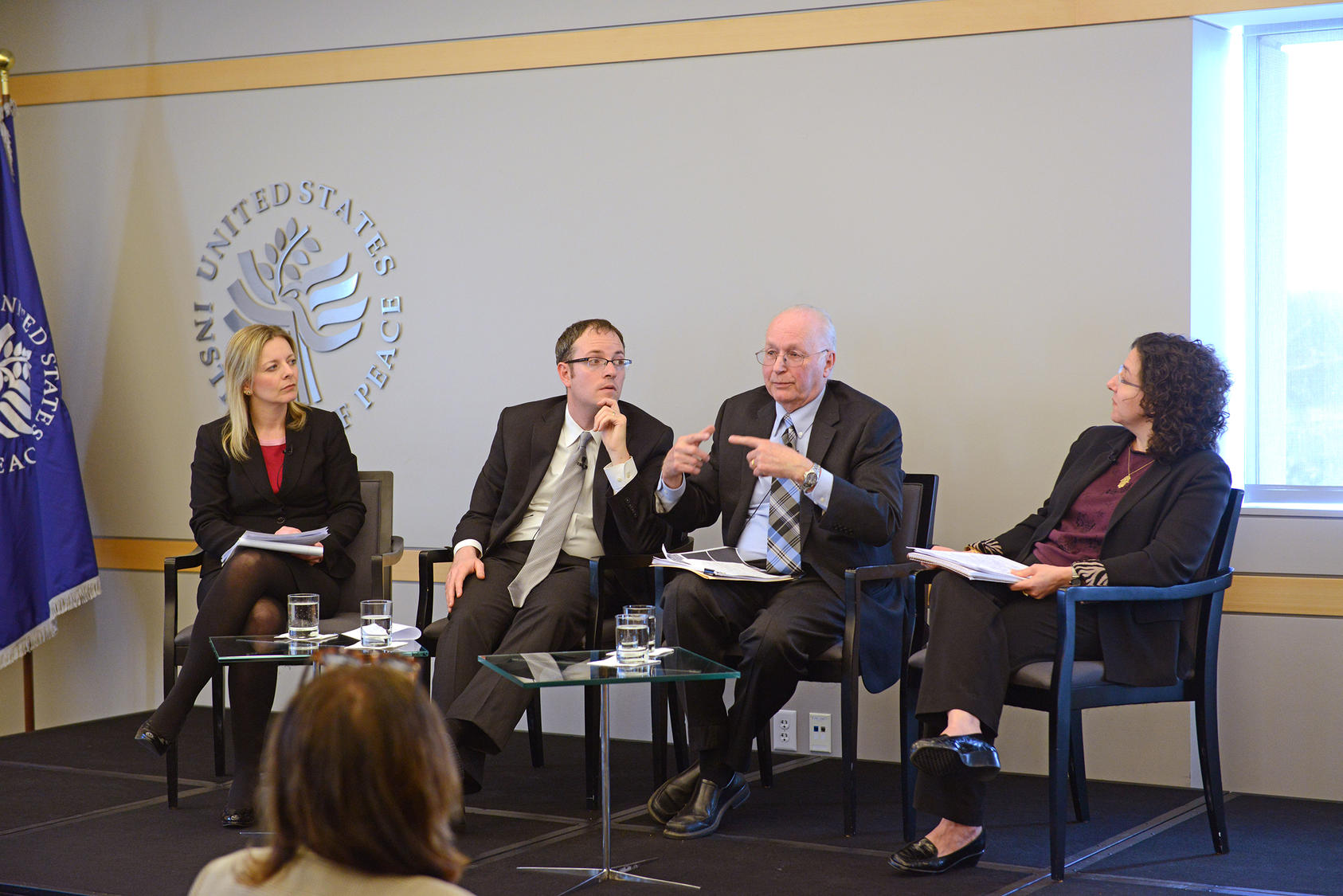Israeli-Palestinian Diplomacy: Learning from 2013-2014 & Looking Ahead Post-Israeli Elections
President Obama has raised the possibility of another push for an Israeli-Palestinian peace agreement before he leaves office. With stability on the ground already severely at stake, it is imperative that any renewed attempt take account of lessons learned from last year's round of failed talks. On March 23, the U.S. Institute of Peace and the Center for a New American Security held a discussion with Ilan Goldenberg, the chief of staff to the U.S. special envoy during those talks and author of the new report Lessons from the 2013-2014 Israeli-Palestinian Final Status Negotiations.

What suggestions and recommendations can we draw from a process that built upon and at times diverged from the path of previous diplomatic efforts? How can they be leveraged by the U.S., the international community and the parties themselves to move forward constructively toward a peace agreement?
Goldenberg was joined by a panel of experts who will offer an assessment of the report's findings and recommendations, particularly in light of lessons learned from earlier rounds of negotiations.
Speakers
- Ilan Goldenberg
Senior Fellow and Director of the Middle East Security Program,
Center for a New American Security - William B. Quandt
Professor Emeritus, Department of Politics, University of Virginia
Co-author, The Peace Puzzle: America’s Quest for Arab-Israeli Peace, 1989-2011 - Tamara Cofman Wittes
Senior Fellow and Director, Center for Middle East Policy,
The Brookings Institution - Lucy Kurtzer-Ellenbogen, Moderator
Director of Arab-Israeli Conflict Programs, U.S. Institute of Peace




